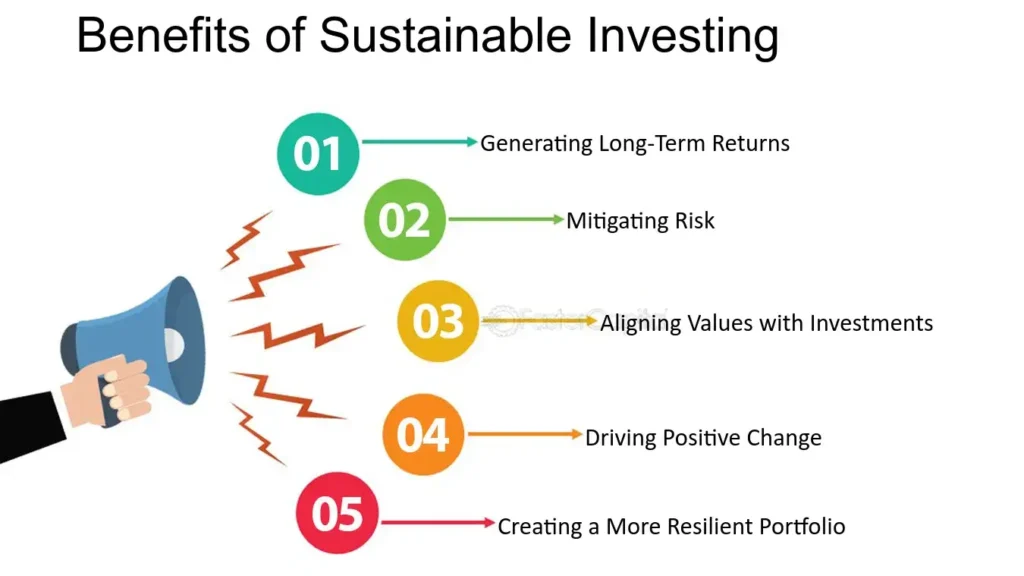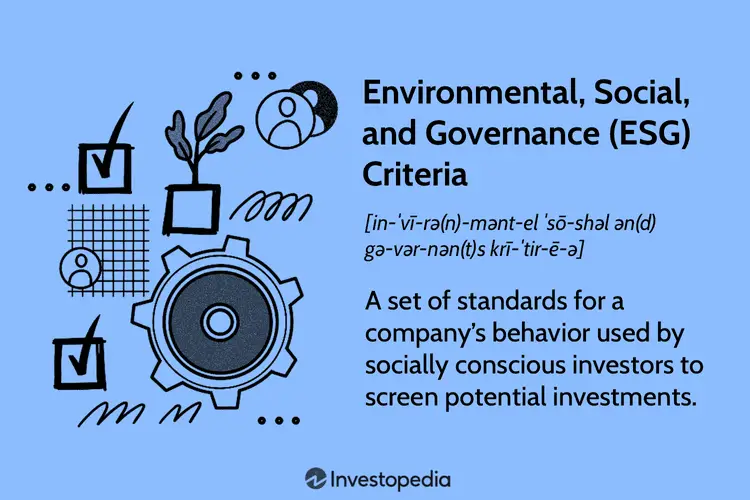Disclosure: Privacy Australia is community-supported. We may earn a commission when you buy a VPN through one of our links. Learn more.
Ethical Investing in Australia: Aligning Your Money with Your Morals in 2024
You might have heard the term ‘ethical investing’ and that’s with good reason. It’s certainly gaining traction. In fact, studies have shown that around 77% of investors are interested in it. You could argue that ethical investing is becoming the new kind of normal.
But what is it?
Put simply, ethical investments look to create a profit without affecting the environment or detrimentally upsetting society. It means you can make a profit, but you don’t compromise your values. Sometimes, you might hear ethical investing referred to as ‘green’ investing, but it’s one in the same.
In today’s world, there are many issues we need to consider. These include climate change, animal rights, labour rights, and responsible gambling, to name a few. When making ethical decisions, these are issues that come to the fore.
It’s a complicated subject if you want to get it right. But don’t worry. In this guide, we’ll cover everything you need to know about ethical investing.
TL;DR
- Ethical investing combines financial returns with moral values.
- The global ESG market is worth over $30 trillion and growing rapidly.
- Strategies include negative screening, positive screening, and impact investing.
- Challenges include greenwashing and standardisation issues.
- Technology is shaping the future of ethical investing.
- Ethical investing can be applied across various asset classes.
- Global perspectives on ethical investing vary by region.
- Measuring impact is crucial but can be challenging.
Understanding Ethical Investing
Okay, we touched upon the definition, but let’s delve deeper.
Ethical investing means you’re doing a good deed while still profiting from your investments. That is as long as you make solid decisions. At its core, ethical investing looks to create competitive financial returns while also promoting a positive impact on the world.
Let’s look at an example. An ethical investment could be shunning investments in fossil fuel producers and instead focusing on renewable energy companies. It means that you’re making a difference and your investments serve a higher purpose than simply financial gain.
Of course, everyone has different views and values, so ethical investing may look slightly different for every investor. Here at Privacy Australia, we strive to give you balanced information to help you make solid decisions in alignment with your goals. Check out our editorial process, where you can see how we ensure accuracy and quality of our content on ethical investing.
Core Principles
Seeking out companies and investments that align with your values takes time and effort, but it’s worthwhile. You could choose a company that focuses on promoting diversity in the workplace. It could also be a company that ensures fair labour practices. It takes some research, but the results will point you in the right direction.
In general, there are three types of ethical investing: environmental considerations, social factors, and governance aspects. Together, these are known as ‘ESG’. Let’s break them down.

Sustainable investing has a range of benefits beyond monetary gains.
Environmental Considerations
The E in ESG stands for ‘environmental’. Here, it’s about finding companies that interact positively with the environment. Do they use too much carbon, or do they find ways to reduce their footprint? However, it goes beyond climate change. It’s also about resource conservation, biodiversity, and waste management.
Finding a company that excels in these areas can be challenging. However, look for companies that develop clean energy solutions, or those that focus on recycling.
Social Factors
S stands for ‘social’ and this focuses on how companies treat their employees and customers. It also extends to the wider community around it. Identify whether they promote diversity and inclusion. If so, that’s a good sign.
In this category, you might also look at areas like labour practices, productive safety, and human rights. Does the company have a good record in these areas or is it one to avoid? You could explore its employee benefits, whether its leadership team is diverse, and whether they offer community outreach programs.
Governance Aspects
Finally, we have G, which stands for ‘governance’. This aspect is about how a company runs. We’re not talking about its staff here or environmental issues, we’re talking about its management and leadership teams. It means whether the board shows diversity, about executive compensation, how transparent it is, and about shareholder rights.
When a company has positive and smooth governance, it works well. Everything runs smoothly, fairly, and business is more likely to boom. Of course, that’s also good for your investment.
Evolution of Ethical Investing
Ethical investing has been around for a long time but it’s really come to prominence in the last few years. Perhaps it’s because we’re developing more of a social conscience.
Throughout past history, ethics in financial markets were influenced by religious beliefs. In those situations, people actively avoided businesses whose policies or actions clashed with their own beliefs. The 18th century Quakers are a good example. They were said to be the first Americans to go down the ethical trading route. They prohibited their members to participate in anything to do with the slave trade.
We can also look to the founder of Methodism, John Wesley. He advocated for avoiding businesses that might negatively impact the community, such as chemical manufacturing. More recently, islamic banking is a religiously inspired ethical investing route. Instead, the Amana Mutual Funds Trust provides investment options that fit with Islamic tenets. This includes avoiding gambling, interest on funds, and penalties for late payments.
In the 20th century, ethical investing became more popular as many regions embraced secularism. For instance, in the 60s and 70s, US investors avoided any organisations that supported or benefited the Vietnam War. Instead, they looked for companies that championed equality and worker rights.
Over the last 20 to 30 years, environmental concerns have appeared at the forefront of our minds. Rather than investing in coal and fossil fuel firms, investors look toward renewable energy companies as a form of ethical investing.
The ESG Framework
We’ve explored what ESG stands for, but it’s important to understand how important the ESG framework is. You can use it as a multi-tool to help you evaluate companies from all angles. Using environmental, social, and governance criteria, you can assess how companies are performing beyond what their financial statements say.
Companies are also waking up to the importance of ESG. According to Morgan Stanley, 77% of global investors want to invest in companies aiming to maintain a positive impact.
The Ethical Investing Landscape in 2024
Now let’s focus firmly on the modern day. Ethical investing is now mainstream and ESG assets grow consistently. However, it’s not only about numbers, it’s a real change in mindset happening before our eyes. People are realising that we can make a difference with our money.
Of course, it’s important to remember that even if you have good intentions at heart, not everyone else does. When you’re trading online, it’s vitally important to secure your financial information. Password protection is one aspect you should pay very close attention to.
Market Size and Growth
To really press home just how much growth is in the ESG domain, let’s look at a key number. The worldwide ESG market has a value of an estimated $30 trillion. And it’s still growing!
Overall, we’re seeing a real surge in sustainable funds and ESG assets under management. Companies are constantly looking at how they can improve their ESG score, using this in their decision-making.
Australian Market Dynamics
Here in Australia, the ethical investment wave is huge and countless investors are surfing on it. The Australian financial sector has really embraced this whole theme and there is a real appetite for investments aligning with values. Of course, all of this is a good thing, not only for investors but for the world as a whole.
To really press this home, ABC reports that 88% and Australians want their money to be invested ethically. This is a rise since 2002, when the percentage was 83%.
Investor Demographics and Motivations
You might wonder who is driving the push toward ethical investments. Well, it’s a very diverse picture. From millennials who are just starting out in the investing world to seasoned professionals looking to realign their portfolios. We now realise that we don’t need to choose between making money and making a difference. We can do both.
Generational Differences
Of course, just as there are generational differences in most things, it’s the same story with investing. Millennials and Gen Z are the ones far out in front, often prioritising positive impact over financial returns. However, that doesn’t mean that Boomers and Gen X aren’t as interested – quite the opposite! They’re quickly realising that ESG factors matter in a big way. In the end, the world benefits from this increased awareness of ethical investing, while individuals also make the profits they seek.
Value Alignment vs. Financial Returns
With all this talk of value alignment, you might wonder how easy it is to balance alongside financial returns. After all, most people invest to make money. However, many recent studies show that ethical investments often perform as well or sometimes better than other types.
That doesn’t mean you can pick any company with strong ethics and expect to make money. You must do your research and find a choice that also satisfies your ESG needs before you invest ethically.

Ethical investing means balancing money with your personal values.
Regulatory Environment
With the increased demand for ethical investments, it’s no surprise that governments and regulatory bodies are catching up. Over the last few years, we’ve seen many regulations around transparency and a desire to prevent greenwashing.
Companies can say that they’re environmentally friendly, but they must be transparent about how. Equally, companies that attempt to greenwash are far more obvious than ever before. This makes it much easier to spot the bad versus the good when choosing where you invest your cash.
Ethical Investment Strategies and Products
We’ve talked a lot about what ethical investing is and how it’s become popular. Now it’s time to understand how to invest ethically in the first place. From negative screening to impact investing, there’s a lot you need to understand. However, one of the first things is to find a platform that suits your desire to invest in ethical funds.

eToro is an ideal choice for ethical investments, offering a range of socially responsible investment (SRI) options. It allows users to invest in portfolios focused specifically on ESG criteria. You’ll find they carefully exclude companies involving tobacco, weapons, and fossil fuels and instead focus on companies with strong ethical practices.
Of course, before you make a choice on who to invest in, you need to know where your values lie.
Spend some time discovering what kind of ethical areas are important to you. Do you feel comfortable investing in a firm whose products or services you find morally questionable? It’s important to keep an open mind because it’s extremely difficult to find a business that meets all your standards. When you know your values, the decision is easier.
Negative Screening
Negative screening is one thing you need to know about before jumping into ethical investing. Put simply, it’s a strategy that helps you identify the good guys. It excludes companies that don’t meet ethical criteria, such as fossil fuels or tobacco, or other things you don’t agree with.
Put simply, this is a way of finding companies that have a low score on the ESG front. Then, you can avoid them when making your investment decisions.
Positive Screening
As the name suggests, positive screening is the opposite of negative screening. In this case, you actively look for companies that have high ESG scores. That means companies that are keen on environmental stewardship, social responsibility, or corporate governance.
It’s a little like being a talent scout looking for the next big thing. And once you find them, you invest and hopefully win big.
Thematic Investing
Next, we have thematic investing, which is about focusing on specific trends or themes that are in alignment with your values. If you want to support renewable energy, you can look for companies championing that cause. Perhaps you want to focus on gender equality, and there are many companies that fit the bill.
It’s about balancing your desire to support a theme and diversifying your portfolio. Remember, don’t put all your eggs in one ethical basket.
Impact Investing
Another way to find companies that fit your ethical framework is impact investing. Here, you actively look for companies trying to make a measurable positive impact on the world.
The only problem here is that measuring impact is tricky. How can you calculate how much good a company is doing? You know it’s doing something but putting a number on it is very difficult. For that reason, you need to have your opinions on how positive a company is before making an ethical investment. Do your homework, understand how that company makes you feel, and dig deeper before investing.

The ESG framework is a valuable tool when choosing ethical investments.
Ethical Investment Products
Let’s talk about the tradable instruments you can use to invest ethically. From ethical mutual funds, to ETFs, green bonds to sustainable real estate investments, there’s plenty to choose from.
But remember, just because something has an “ethical” label, don’t simply take it at face value. Do your homework before deciding whether it’s a good investment. To help you out, take a look at our Forex.com platform review, where you’ll find information about investment options.
Ethical Mutual Funds and ETFs
When you’re looking for diversified ethical investments, look at ethical mutual funds and ETFs. These funds pool money from several investors to then invest in a basket of ethically-screened stocks or bonds.
This is a good way to get started in ethical investing without having to choose your own companies to invest in.
Green Bonds and Social Bonds
Next, we have green bonds and social bonds. These tradable instruments are tied specifically to either environmental or social projects. For instance, green bonds might be renewable energy projects or sustainable buildings. On the other hand, social bonds could be affordable housing or education initiatives.
Put simply, these are ways to make your money work for the greater good, while still getting a return. The only downside is that these instruments tend to be more about steady returns and positive impacts than fast dividends.
Sustainable Real Estate Investments
Then we have sustainable real estate investments. These investments focus on properties that have strong sustainability credentials. We’re talking about energy-efficient buildings or houses with a low environmental impact. It’s true that there is money to be made in the property market. This is a way to do it while still supporting green endeavours.
Of course, there is also a lot of demand for green buildings, so these are quite strong investments. However, remember that location is vitally important. You can invest in a great business but if the property is in the wrong place, it’s useless.
Challenges and Criticisms of Ethical Investing
At face value, you might think there couldn’t possibly be any criticisms or issues about ethical investing. You’d have a point, but we also have to consider things like greenwashing and performance debates. We briefly touched up on greenwashing earlier, but let’s delve into this vitally important issue some more.
Greenwashing Concerns
So, what is greenwashing? Basically, it’s when a company tries to make itself look green and eco-friendly when in reality it’s not. They exaggerate their ethical credentials to attract investors with a conscience.
Greenwashing makes choosing a solid ethical investment very tricky. It’s important to really dig deeper and find out the truth about the companies you want to invest in. Don’t just fall for the marketing trick.
Performance Debates
A key question about ethical investing is whether you can do good and do well simultaneously. Basically, can you have your cake and eat it too? It’s a debate that has long been around and it’s probably one that will last the test of time. Some people argue that ethical investments often underperform. However, others say they can match or even beat traditional investments.
So, what’s the truth?
Nobody really knows. It’s complicated, let’s put it that way. Whether or not you succeed in an investment doesn’t come down to whether it’s ethical, there are many other factors. You need to take into account your risk tolerance, diversification, timeframe, and your specific choices. The only sure thing is that you no longer have to choose between returns and ethics.
Standardisation and Measurement Issues
A big challenge is trying to standardise and then measure social impact in ethical investing. When you think you know where you’re at, something changes, and you’re lost again. It’s also tricky to pinpoint for sure what makes an investment truly ethical. Measuring social impact is like trying to swim through mud.
After all, what you consider ethical, someone else might not, and vice versa. The good news is that there are efforts being made to try and create a standard framework. It’s just not arrived yet.
Balancing Ethics and Fiduciary Duty
Investment managers have something called ‘fiduciary duty’. This means they have to act in the best interests of their clients. So, how do they balance this duty with their ethical goals? This is another challenge to consider.
The truth is that it’s difficult; it’s a little like walking a tightrope. On the one hand, investment managers want to invest in an ethical way. But on the other hand, they also have a legal obligation to act in the best financial interests of their client. It’s something which can be done but it requires careful consideration and communication. But as we see more evidence that ethical investments can deliver competitive returns, it’s easier to balance the two.

Greenwashing is a dishonest and damaging practice as the world seeks to become more ‘green’.
The Future of Ethical Investing
It’s time to grab our crystal ball and peer deep inside. What does the future of ethical investing look like? Well, for now it looks pretty bright. Technology is revolutionising at a fast pace, and new themes are emerging all the time. Additionally, global cooperating is making ethical investing more accessible.
As more and more people use positive screening when looking for investments, it’s important to diversify your portfolio and stay up-to-date. Look for companies with a strong social mission, rather than just avoiding the bad guys.
Let’s take a look at the future themes and trends we’re likely to see in the world of ethical investments.
Technological Advancements
We know that technology moves at a breakneck speed. It’s hard to keep up. Artificial Intelligence (AI) is now analysing ESG data faster than you can blink. We also have blockchain that tracks supply chains with eye watering accuracy. Finally, big data measures impact in ways nobody ever thought of before.
However, it’s important to remember that you also have to use technology in the same ethical manner as your investments.
Emerging Themes
New themes are appearing all the time. Biodiversity is the hot trend at the moment, focusing on environmental issues. We also have social justice, which is becoming a key player in the investment world. Then there is circular economy, focusing on recycling and reusing to contribute to a more sustainable world.
These themes aren’t completely new, but they’re taking on more importance than ever before. To choose the best ethical investments, it’s important to read industry news, stay updated, and maintain your curiosity levels. Trends and themes move quickly; what’s hot today might be cold tomorrow.
Global Cooperation and Standardization
There’s some good news here. As more people start to look at ethical investments, there is greater push towards global cooperation. This aims to create unified frameworks and reporting standards. Put simply, it’s a way to get everyone on the same page and singing from the same hymn sheet. Of course, it can be challenging because there are so many views to take into consideration. But the effort is there. Over time, we’re likely to see a ‘harmonised’ approach, taking into account different viewpoints.
In fact, according to Stockhead, the Australian government recently issued its first green bond. It raised A$15 billion to support transitioning to net zero emissions. It just shows that the effort and the will are certainly there.
Implementing Ethical Investing Strategies
You’re almost an ethical investing guru by now! So, it’s time to get practical and understand how to put it all into practice. In this section, we’ll cover how you can start ethically investing as an individual and institutional trader.
Personal Ethical Investing
Choosing to align your investment portfolio with your values is a great place to start. First, you need to define what “ethical” means to you. Identify the things that are important and then start researching your options. There are countless ethical funds and stocks out there, but remember to diversify; you don’t want to put all your eggs in one basket.
Researching Ethical Investment Options
Investigating ethical investment options can certainly take time and effort; yet it’s time well spent. It’s a good idea to start with ethical funds and ETFs. To help you, check out our guide to the best EFTs in Australia.
Learn about their holdings, their screening criteria, and check out their performance. Don’t be afraid to get into the small print; you’ll be surprised what you can find in there.
Yet, always remember this: just because a company says it’s ethical doesn’t mean it aligns with your personal values. Always verify before putting your money where your values are.
Building a Diversified Ethical Portfolio
Now, let’s go back to the D word: diversification. By choosing a little bit of many areas, you’re hedging your bets. This is key in case something goes wrong in one investment; that way you won’t lose everything.
It’s a good idea to spread your investments across different sectors, geographies, and asset classes. You can also use a mix of positive and negative screening strategies to give you the best overview.
Institutional Ethical Investing
Institutional ethical investing takes everything up a notch. It requires coordination, precision, and a very clear vision of what you want to achieve. The stakes are high, especially if you’re managing a pension fund or an endowment. That means you need to have a strong ethical investment policy in place. You’ll also need to engage with various companies to drive positive change and always be transparent about your practices.
It’s certainly not a practice for the nervous out there, but the potential impact is huge.
Developing an Ethical Investment Policy
When you’re creating an ethical investment policy, it’s vital to clearly outline your ethical priorities, screening criteria, and decision-making processes. You need to say what you want to invest in, but also what you won’t. However, it also needs to be flexible so you can adapt to changing circumstances.
Nobody said it would be easy.
Putting in the time and effort now is vital. A well-crafted policy is your best defence against
Engaging with Companies
Actively engaging with companies is a key aspect for institutional investors. It allows you to really play a part in improving performance. You can do this by voting on shareholder resolutions, and engaging in direct conversations with management. You can also collaborate with other investors to push for change.
All of this will help you to increase ESG awareness and adherence.
Reporting and Transparency
We really can’t go any further without talking about the vital importance of reporting and transparency. Even if you don’t intend to be secretive, not being transparent will cause people to wonder what you’re hiding. It’s extremely important to communicate your ethical investing practices to your stakeholders clearly and regularly. When you do this, you’re showing accountability, building trust, and you’re encouraging others to do the same.
But remember, anything you say has to be backed up. That’s where careful record keeping comes in!
The Role of Financial Advisors
As a beginner, a financial advisor can be your fairy godmother of the ethical investing space. They will help you navigate your way through the confusing maze of balancing your values with your money.
A top financial advisor will help you understand ethical funds, and decipher ESG reports. They’ll also tailor an ethical investing strategy to your personal goals and values.
But of course, finding the best financial advisor takes time and effort. Remember that not all financial advisors are as ethical as they may seem. So, just as you need to dig deep when choosing a company to invest in, the same goes for financial advisors.
Learning Recap
We have covered a lot of ground! However, you now know all the basics of ethical investing in Australia and beyond.
From the very basic definition of ethical investing to what it may look like in the future, we’ve dug deep. We’ve also talked about different strategies, how to get started, and the things you need to be on the lookout for. Consider this guide your ethical investing cheat sheet, guiding you through everything you need to know.
In the end, combining financial returns with positive social and environmental impact is a positive thing. It takes time and effort to find companies that align with your values, but once you do, the fit is perfect. The ESG framework is a vital tool for evaluating investments. Additionally, negative and positive screening along with impacting investing are useful strategies.
Remember, the global ethical investing market is growing rapidly and new trends appear all the time. Staying up-to-date with investments will allow you to stay one step ahead. Key challenges, such as greenwashing, performance debates, and standardisation issues remain, but careful research allows you to overcome them.
Final Thoughts
And there we have it; we’ve reached the end of our ethical investing journey. By now, we hope you’re feeling energised and excited about your personal route forward.

Ultimately, ethical investing isn’t just about understanding the ins and outs, it’s about aligning your money with your values. It’s a worthwhile and conscious-friendly way to make money and make a difference.
It doesn’t matter whether you’re a beginner or an advanced trader, your investments have power. That means you need to use that power wisely, and ethical investing allows you to tick that box. Also, never be afraid to ask questions, dig deeper, and research before making a move. After all, it’s your money and our planet we’re talking about.
It’s possible that at the end of the guide, you’re feeling a little overwhelmed. You won’t be the first or the last.
At Privacy Australia, we know how much of an information overload all of this can be. We’re here to guide you through the entire ethical investment process, while also keeping your personal data safe and secure. It’s easy to forget about online safety when you’re trying to save the world, but privacy is vital. We have plenty of resources about VPNs, password managers, and reviews about ethical investment brokers such as eToro.
We’re on hand to help you on every step of your ethical investing journey. So, where do you want to start?
You Might Also Like:





